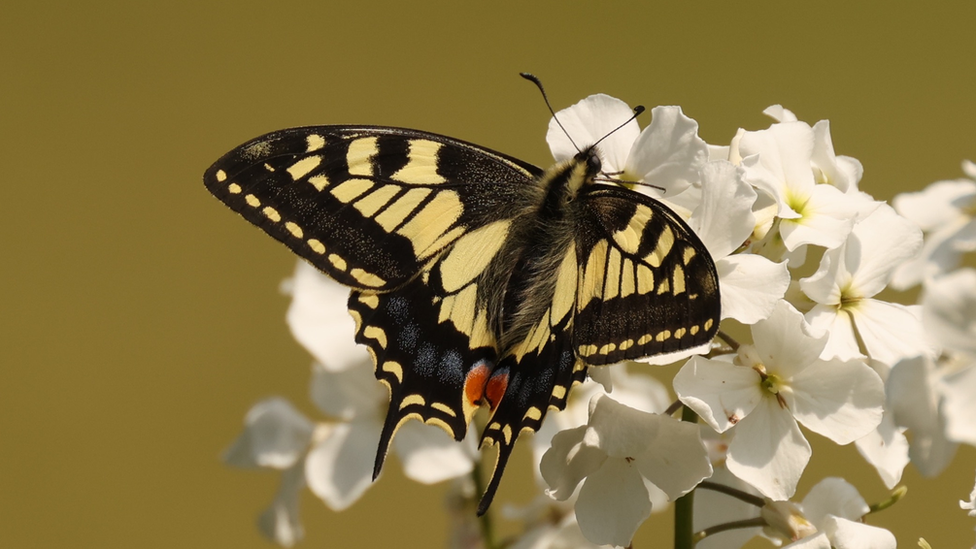Academics trial butterfly project at Jimmy's Farm
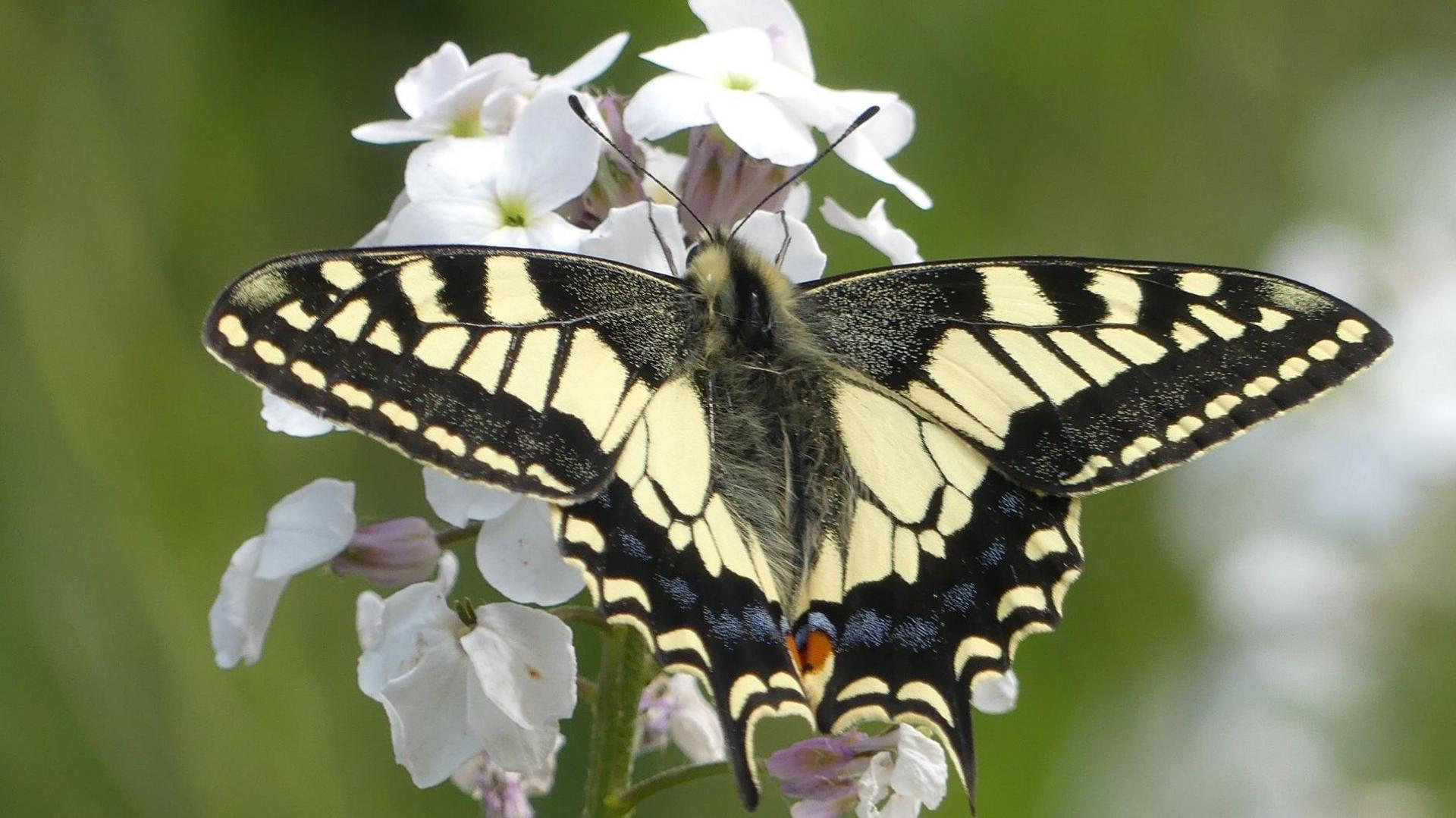
The colourful butterfly's wingspan ranges up to 90mm (3.5in) and it only breeds at open fens and marshes
- Published
A pioneering egg freezing technique will be used in an attempt to boost numbers of one of the UK's rarest and largest butterflies.
Anglia Ruskin University (ARU) researchers want to discover if cryopreservation can work on the British swallowtail, which is predominantly found in the Norfolk Broads.
They will collaborate with Jimmy's Farm & Wildlife Park, near Ipswich, which has a captive breeding population of a subspecies of the insect.
Dr Alvin Helden, from ARU, said he believed this was the first time cryopreservation had been attempted with butterflies.
"Our project will combine fieldwork and lab research to see if we can establish a reliable method for preserving the British swallowtail's genetic material by using its closely related, but less endangered, European cousin," said Dr Helden, a member of ARU's Applied Ecology Research Group.
Jimmy Doherty is the founder of Jimmy's Farm & Wildlife Park and is a visiting professor at the university, which has campuses in Cambridge, Peterborough, Chelmsford and Writtle (Essex).
He said he hoped the project would "make a real difference in protecting the British swallowtail for generations to come".
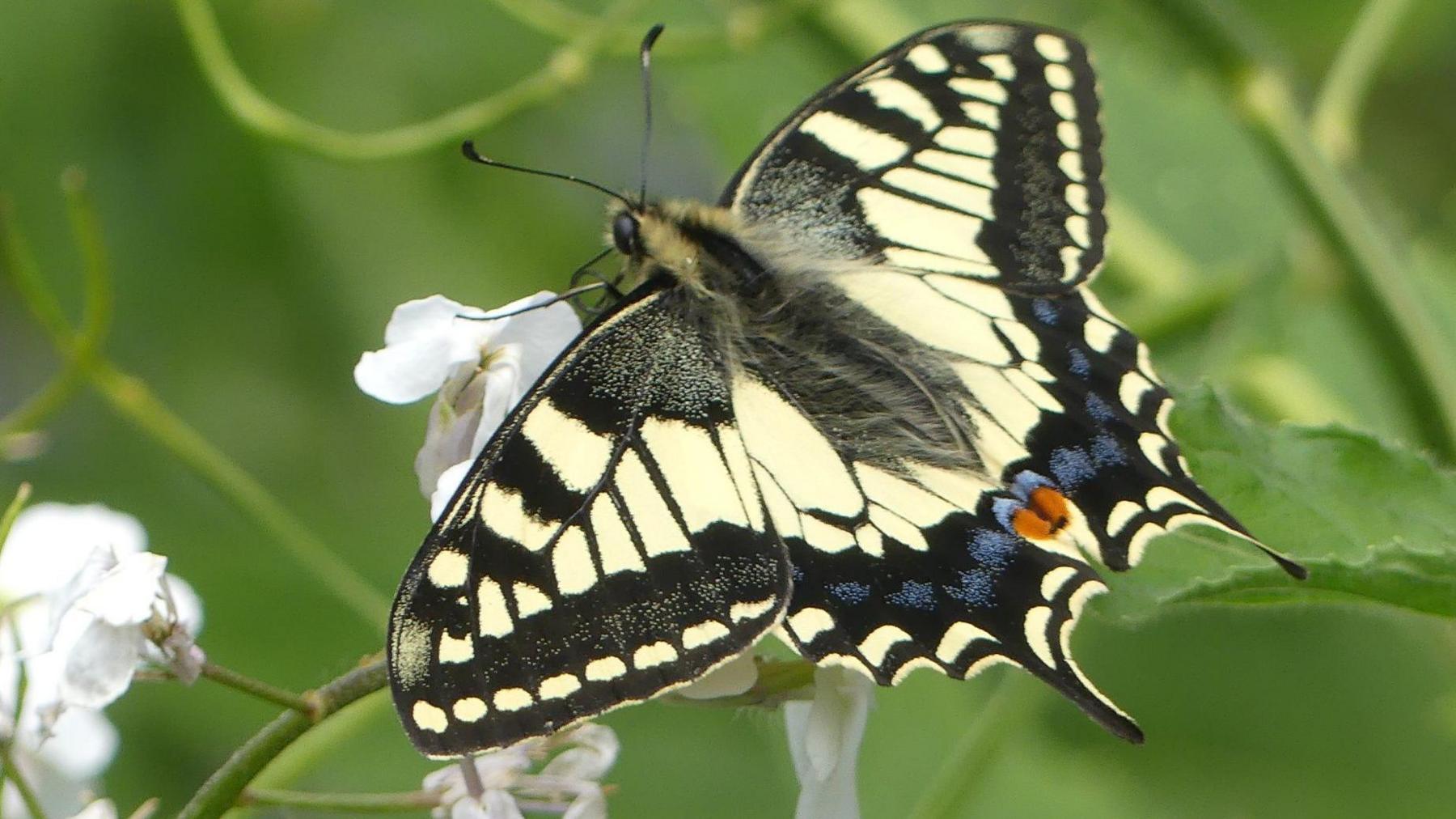
British swallowtails are only found in the Norfolk Broads, although sometimes migrants can be seen elsewhere in East Anglia
The farm has a thriving captive population of Papilio machaon gorganus, which is genetically similar to but far more abundant than the British swallowtail.
The insect is classified as vulnerable.
Researchers will use the latest cryopreservation techniques, which involve freezing the insects' eggs in liquid nitrogen at -196C (-320F).
They will then attempt to rear butterflies from the frozen eggs, comparing them with control groups of the invertebrates reared from non-frozen eggs.
Dr Alvin said: "We will be investigating whether the caterpillars are as healthy and whether the butterflies are as productive as those that come from eggs that haven't been frozen.
"If successful, this research has the potential to help safeguard the future of the British swallowtail and significantly contribute to butterfly conservation in general."
Since the 1970s, the number of butterflies in the UK has declined by 80%.
The British swallowtail's population has dropped by 57% in the last 20 years, according to the university.
Nature's SAFE, a wildlife conservation charity, is involved in the project.
Its chief operating officer Debbie Rolmanis said: "This project holds significant importance for the development of cryopreservation techniques – not only for the British swallowtail, but across pollinators and invertebrates as a whole."
Get in touch
Do you have a story suggestion for Essex?
Follow Essex news on BBC Sounds, Facebook, external, Instagram, external and X, external.
- Published13 September
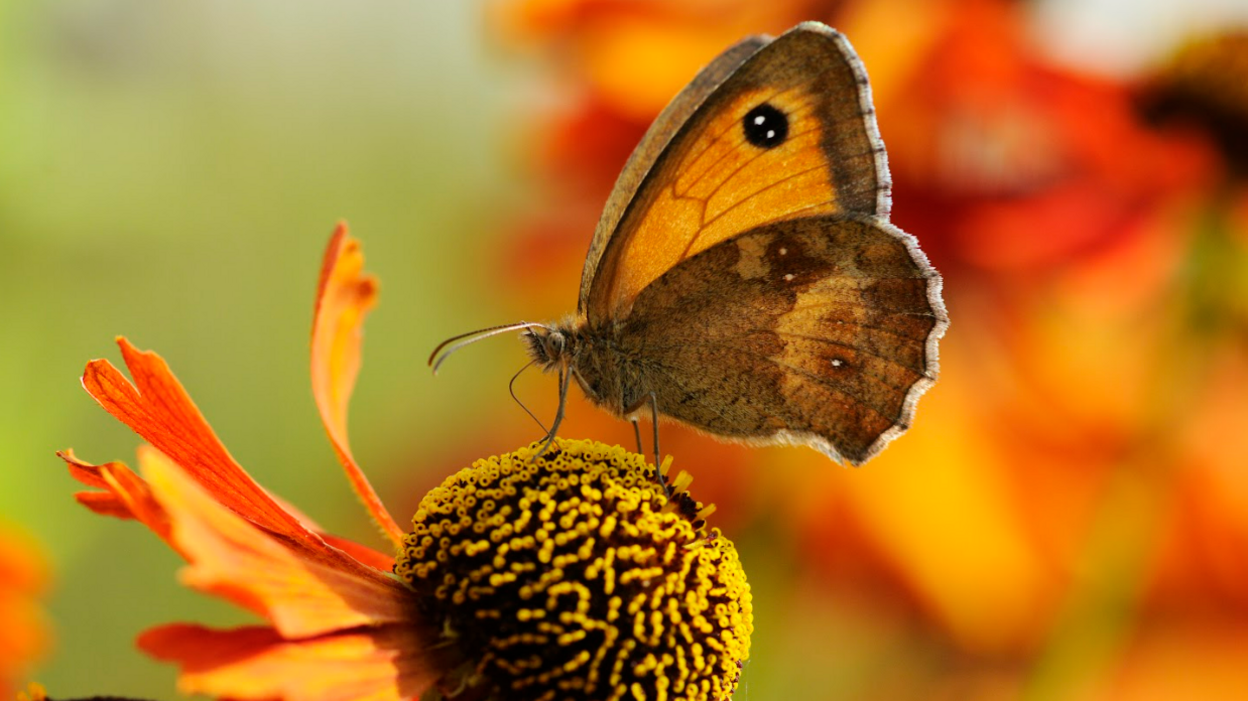
- Published15 August
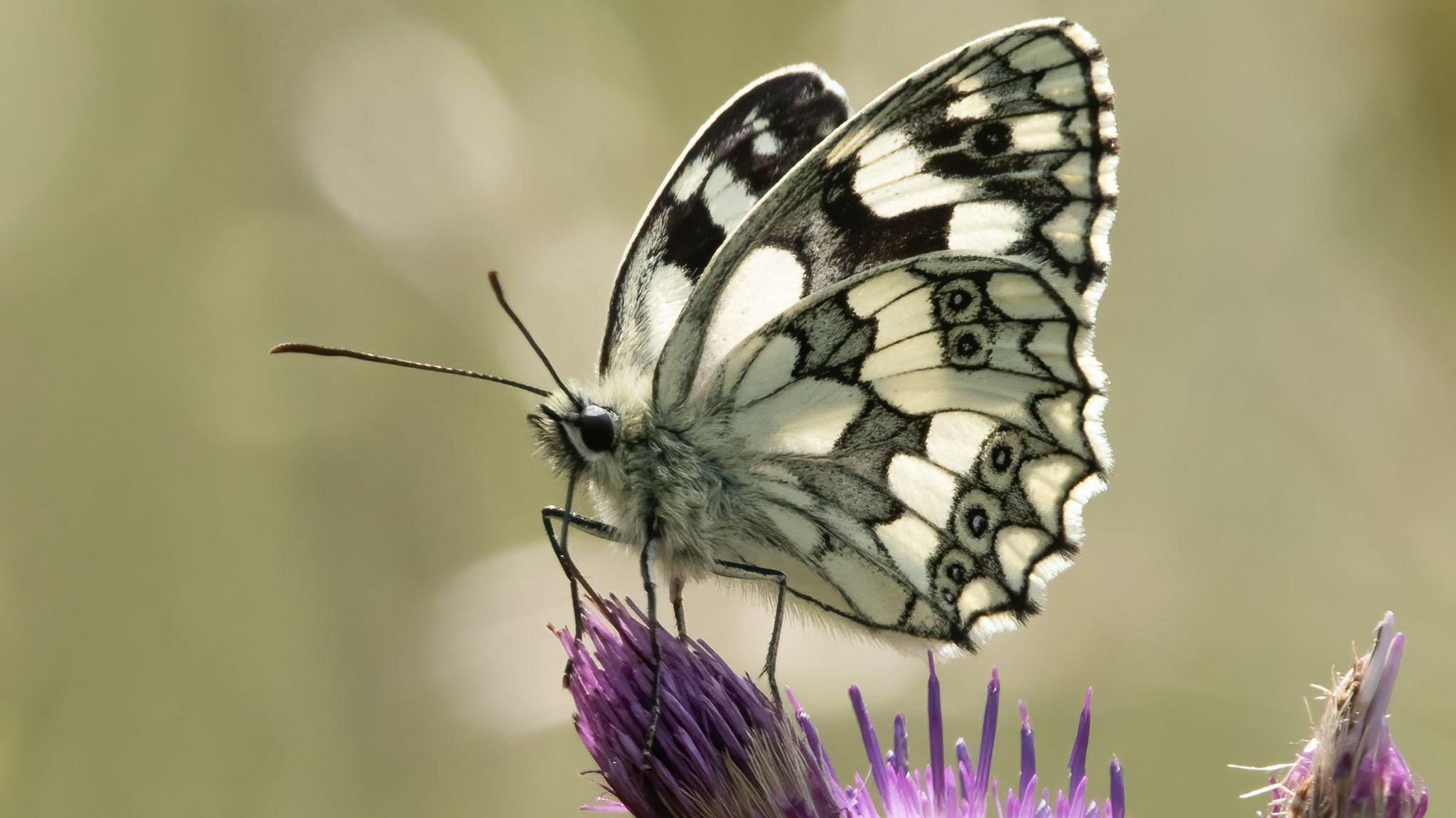
- Published10 June 2023
